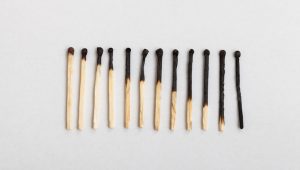I’ll rest when I’m dead…as driven business owners we’ve probably all said this phrase at some point in our careers.
JP and I were reflecting the other day on the amazing group of teams, agents, and staff that have joined us to create their business within the business. We are blessed to be surrounded by the best of the best. We are blessed to work in an industry of such dedicated, loyal and giving professionals that provides so much opportunity and fuels so much of our economy. Yet as self-employed, driven entrepreneurs many of us live life on the wire and are highly prone to burn-out.
Normally we write about increasing productivity, tips and hacks to make you more productive. Yet today, let’s review rest: the power of rest… the necessity of rest and the purpose of rest.
Consider this… if you are not fully rested and charged you can’t serve your clients at the highest level. Yes? So taking time to sharpen the saw, to rest and recharge is a way of better serving your clients. And if that’s not a good enough reason for you, then consider that science has proven that working too much can be counterproductive and even hazardous to your health. Any testimonies?
So as self-employed entrepreneurs – with no guaranteed paycheck – how do we balance work and non-work activities? It’s not easy, yet in his book “Life On The Wire” my friend Todd Duncan contends the last thing we need amid life’s inherent imbalance is another attempt at a how-to formula for perfect balance… equal parts work and life. In fact, he argues that such a holy grail does not exist. Instead, he has issued a more pragmatic formula he calls purposeful imbalance: the process of purposefully leaning toward work without sacrificing life and purposefully leaning toward life without damaging your business. It is precisely the way a tight-rope walker makes his way across a one-inch rope without falling.
I’ve turned to FORBES magazines council of coaches for some advice and here is what they have to say.
7 Practical Tips To Avoid Burnout and Reduce Stress
 1. Get Curious About Self-Care
1. Get Curious About Self-Care
One strategy to reduce stress is to get curious about self-care. Self-care is about getting clear on what’s important to us and what will recharge our batteries. An easy way to do this is to explore a hobby we have been interested in, and approach it with a sense of curiosity instead of mastery. Allowing ourselves to “just play” can open up space we never knew we had. – Coach Jean Muhlbauer
2. Set Time Aside For Quiet Reflection
Set time aside daily for quiet, inner reflection in silence and solitude, followed by planning and organizing your day. Assess the actual value of your priorities and activities. Practice discipline in your focus to avoid distraction. Each morning, evaluate your past day’s success and adapt accordingly. – Coach Jay Steven Levin
3. Spend At least 15 Minutes A Day In Meditation
One practical strategy a modern professional can easily incorporate into their life to reduce stress is to schedule at least 15 minutes a day to meditate. This may sound like an overused idea, but that does not diminish its impact or effectiveness. While there is empirical data to support the positive effects of meditation, one does not need data to experience it first hand. Give it a try. – Coach Sharesz T. Wilkinson
4. Develop A Personal Daily Ritual
One strategy that just about everyone can do to help reduce stress is to develop a personal and practical ritual that you can do every day. For one of my clients, it’s having tea first thing each morning at a table or location away from her work desk. Some of my clients have incorporated nightly journaling or even an afternoon 20-minute nap. The key is to find something relaxing and stick to it! – Coach Trellis Usher
5. Hit The Pause Button More Often
Do you hit the pause button often enough? When you do, you can think through and adjust a communication, determine if you are working on the right priority versus just working, and most importantly, see the forest versus being caught in the trees. – Coach Janine Schindler
6. Accept That Stress Is Of Your Own Making
Our work with very successful CEOs and senior executives allows them to appreciate that stress is of our own making against some ideal, what we perceive others think of us, or unrealistic expectations. We have the same amount of time as everyone else and freedom on how we choose to use that time. Most importantly, we have freedom in how we choose to perceive our own performance and accomplishments – Coach Dave Garrison
7. Live In The Now
Living in the now is a great way to reduce stress. Focusing on the future creates anxiety, and thinking about the past creates regret. Furthermore, the future does not exist because when it arrives, it arrives in the present moment. The only thing that exists is right now, and focusing on the present moment and situation directly in front of you can significantly reduce your stress. – Coach Jason Johnson
So there you have it – 7 practical steps – from 7 world class coaches. Do you have something to add to the list? Share it in the comments below. For me, I frequently rely on what’s written in Matthew 11:28-30.
Our desire this week, and every week is that you take time to rest and recharge… so you can better serve you, your families, your clients, and your community. Rest well, my friends.
#WinTheDay


